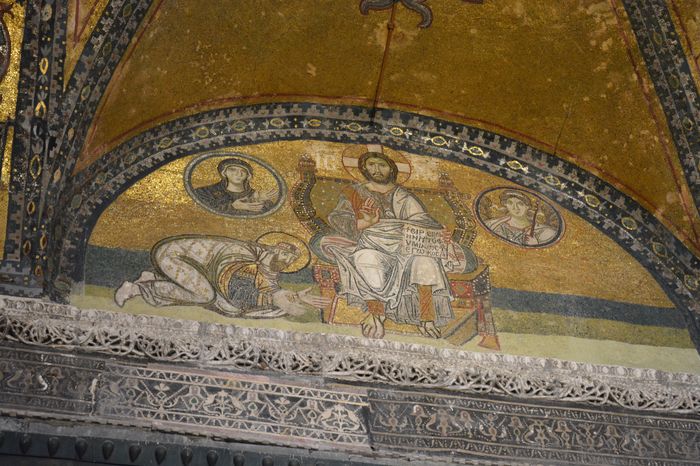One of the oddities Byzantine studies is that it has long attracted homosexual scholars, but virtually none of them have written about Byzantine homosexuality. There may be reason for this – in comparison with the mass of information about Ancient Greek and Roman homosexuality, the thousand years of Byzantine culture is poorly served.
Entire classical genres disappeared – plays, satires, secular philosophy. There has been, instead, a legal tradition to explore; rather a lot of monastic regulation; and the occasional comments in elite historiography on homosexual activity by some emperors. John Boswell’s Same Sex Unions rather surprisingly (to Byzantinists at least) for a time has made Byzantine liturgical manuscripts a focus of much interest.
But there is considerable room for further exploration. A number of saints lives reveal diverse opinions, and relatively little shock, about homosexuality (usually “andromania” in these sources), but they have not been fully exploited. Some saints lives also discuss homoerotic pairings with little comment. Although certainly not sexually active, it is also common to find Byzantine saints paired with each other in relationships which can be analyzed from the perspective of desire – “friendship” hardly begins to describe what they are about.
Other texts which may yield more are the small number of Byzantine romances now coming under increased scrutiny. It may be thought that hey are about “heterosexuality”, but much current scholarship in western literature suggests that this will not be a satisfactory way in which to evaluate them.
Byzantium also supported an important sexual category not common in modern life – the eunuchs who rose to prominence in Church and state. There was even a monastery specifically for eunuchs. Comments on this group, as with any liminal group, help explain a society’s gender expectations.
Finally, it cannot be overlooked that ancient texts tend to survive in Byzantine made copies. Which texts were copied, how often, and where are all answerable questions which may yield insight into Byzantine mores. While they did not write much homoerotic literature, they did copy it and, presumably, read it. Why?
Read More about Rejecting the commentaries








